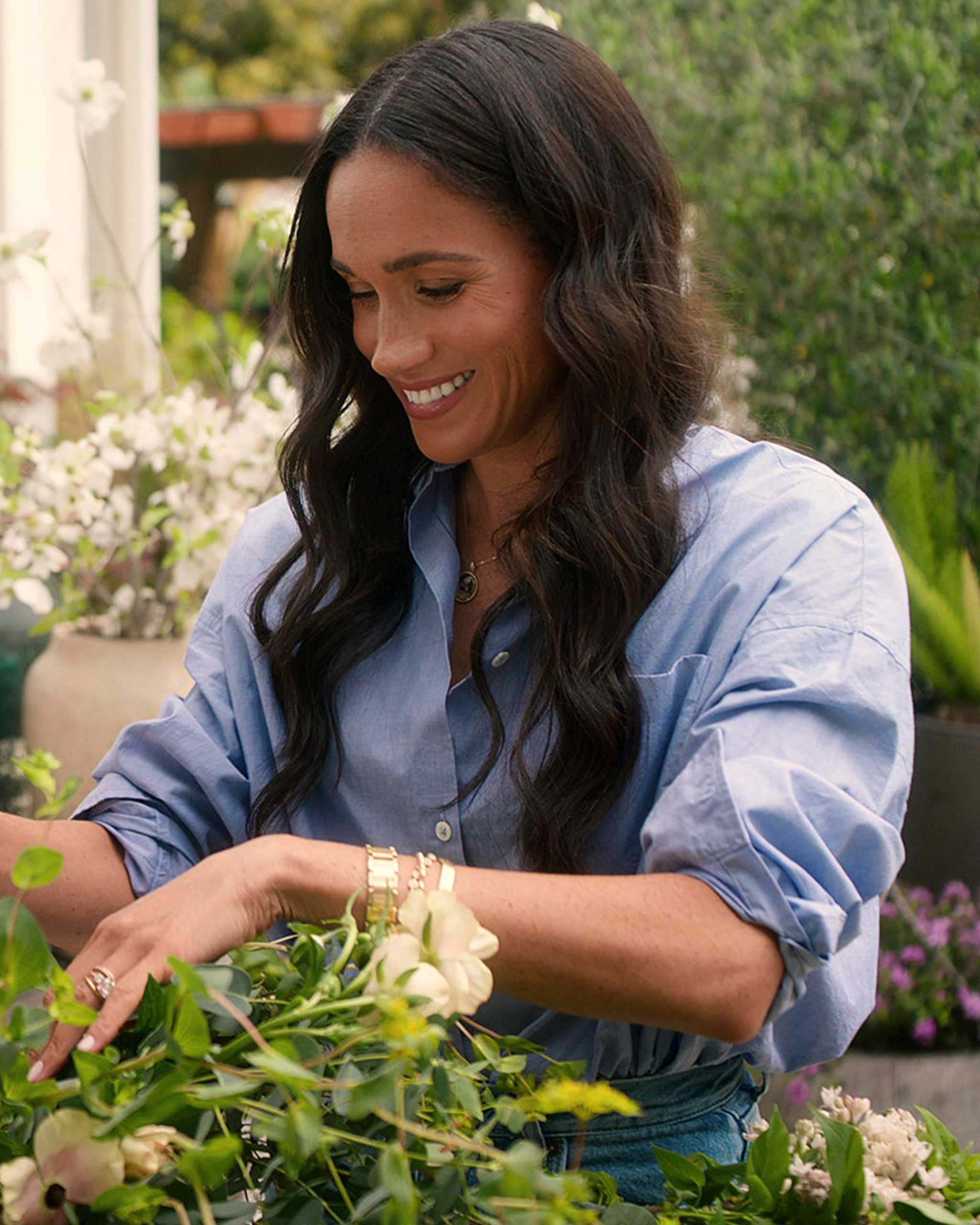Photo: Courtesy of Netflix
Last names are political; that much is obvious. From immigrants smoothing out those Old Country consonants (just ask Ralph Lifshitz, Mindy Chokalingam, and Ramón Estévez, better known as Ralph Lauren, Mindy Kaling, and Martin Sheen), to political figures trying to adopt a man-of-the-people persona (Alexander Boris de Pfeffel Johnson, a.k.a. Boris Johnson, springs to mind), there’s always a strategic aim behind this kind of rebranding. Even single-name female celebrities—Cher, Madonna, Oprah—who operate above the mortal realm might be telling us something about their attitude to the patriarchal tradition of taking on some man’s identity.
In her show With Love, Meghan, the former royal shares that she’s apparently now using the surname Sussex. Fair enough, I say. It’s a nice place. Good chalk cliffs, some nice vegetarian cafés. Honestly, what another woman chooses to call herself is not only none of my business, but also none of my interest.
However, the assumption that a woman’s identity should be subsumed into that of either her father or male partner has always struck me as weird. Ever since I first read the name Princess Michael of Kent and, being 11, sniggered, I’ve found this practice at best absurd and at worst oppressive.
Which is why I have named my daughter Frizzell. Second time around, as I cycled across the city, nine months pregnant, to face a class of teenagers as their English teacher, I became increasingly resolved in my desire to pass on my own name. It is, after all, a great name. I didn’t actually know that my full name rhymed until I got to secondary school. When I confronted my parents about this rather Dr. Seuss-y moniker—so many Zs, so many Ls, so many ways to rhyme with “smell”—they claimed not to have noticed either.
My son has his father’s surname. This was a decision partly inspired by the fact that he shares a first name with my father, and so it seemed sensible to create a distinction, and also because I was happy to have Frizzell in there as a middle name, should he ever want to change. However, when I told my son that I was pregnant with a girl and wondering what to call her, he very quickly agreed that she should become a Frizzell. According to his logic, “Girls are Frizzells.” And who am I to argue?
I have several friends who have admitted that they regret not passing on their own name to their children. It seems not only old-fashioned but also faintly insulting, after all that effort you’ve just gone through. For those of us who haven’t taken on a husband’s name (another inexplicable tradition as far as I’m concerned), it can also create an administrative pain in the arse. When the name on that parcel, passport, or medical record doesn’t match yours, it only takes one rather fastidious, poorly trained, or overzealous member of staff to suddenly separate you from your child in a fairly significant way. More than once I have stood with my son at some counter and pleaded, “He is mine, I promise—just look at his eyes,” only to be met with that particular kind of flat, beige dismissal only British public-facing employees can really muster.
So, as I type this, baby Frizzell curled against my shoulder, may I make a suggestion to you all: cut out the wordiness and complication of double-barrelling (which, after a while, makes children sound like firms of solicitors) and the faff of creating portmanteaus, and just adopt my system: girls get mothers’ names, boys get fathers’ names, and single parents and same-sex couples just choose whoever’s name sounds best.
This article was originally published on Vogue.com.
- Places…and Action! Everything You Need to Know About Vogue World: Hollywood
- “I Would Love Leonardo DiCaprio’s Career”: Owen Cooper On What’s Next After His Star-Making Turn In Adolescence
- Mugler Appoints Miguel Castro Freitas as New Creative Director
- How Anna Akana Inspires Laughter, Especially When Life Gets Darker
